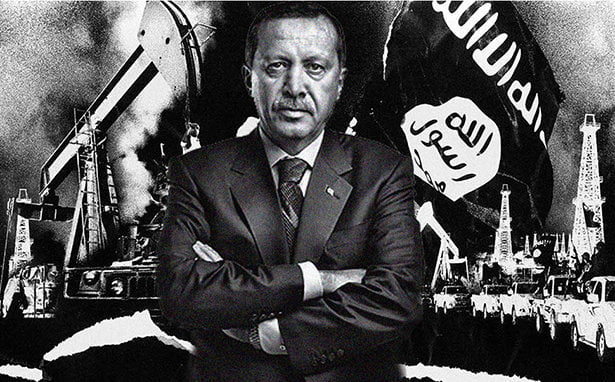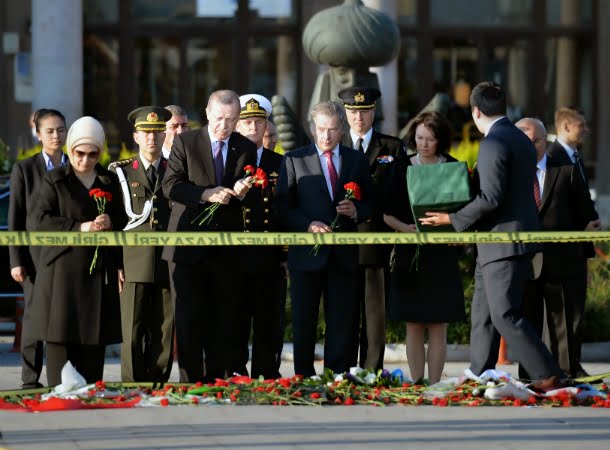Why Erdogan Is Soft On ISIS

Date posted: August 30, 2016
Ahmet İnsel
Turkey’s government and the media that support it have an odd attitude when it comes to violent acts carried out by ISIS: It’s as if the “cultural/ideological dialects” of the ruling Justice and Development Party (AKP) government somehow malfunction.
For starters, the government has a hard time condemning the vicious massacres carried out by the organization that calls itself the Islamic State, which is just what happened with the most recent attack in Gaziantep on Aug. 20 month that killed 57 people. The government of President Recep Tayyip Erdogan does not use the heavy tones of condemnation reserved for other violent organizations like the Kurdish PKK, or the Gülenist group blamed for the July 15 attempted coup. The difference with ISIS is that it touches their own ideological grassroots.
There is a really serious problem here. This hesitant attitude due to cultural and ideological affinity is the reason Turkey’s security forces are less virulent to the presence and actions of ISIS militants compared to other organizations, and why the judiciary is more understanding of them. This does not end with the ruling party and its officials: Indeed, most Sunni Muslims feel this way.
No organization name
In AKP party circles and affiliated media, beginning with President Erdogan himself, are careful to place ISIS actions within a broader definition of terrorism and terrorist organizations. The “terrorism cocktail” that Erdogan invented after the Ankara train station massacre of 2015 was the apogee of this approach. Today, Prime Minister Binali Yildirim is careful to not to say the name of the organization when he declared after Gaziantep: “No matter what the name of this villainous terror that caused [the loss of] innocent life, the state, government, and nation will continue our determined fight against it.”
Meanwhile, AKP spokesperson Yasin Aktay says: “All terrorist attacks are carried out by one hand,” implying that knowing who the terrorists actually are does not matter. I hope the security forces of Turkey do not think the same, for the sake of everybody’s safety. I hope they are not putting all the different acts of violence by different organizations for different purposes all in one basket!
Take the Turkey cells of ISIS: Their actions, purposes and target audience are, for example, incomparable with the charges brought against the Gülenist groups aligned with Fethullah Gülen. Meanwhile, the PKK is a Kurdish political organization that carries out an armed struggle that includes terrorist acts, but this does not mean they are the same as either ISIS or the Gülenists. It is not comparable either in political, organizational or criminal terms.
To come up with such a generalist view of terrorism is of course not done without purpose. The facts are knowingly being hidden when the group in question is the Islamic State. In the last three years, the AKP government has rejected all parliamentary motions by the opposition to investigate the structure of ISIS in Turkey — or even to discuss it in the parliament.
I am not here to say that such attacks by ISIS can be prevented by different words or acts of parliament. Yet this this attitude is a clear evidence of the ideological closeness between the government and ISIS, which risks undermining the response of security forces, judiciary and other state organs toward the organization.
The government is politically accountable if ISIS actions do not stop in Turkey. Trying to cover this up with nonsense like “ISIS is the same as PKK and the Gülenists” only increases this accountability.
Source: Worldcrunch , August 30, 2016

























